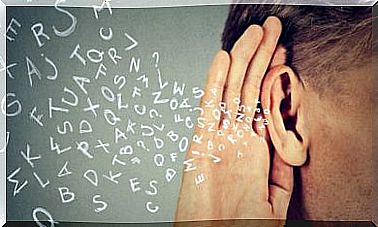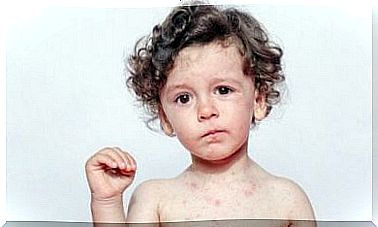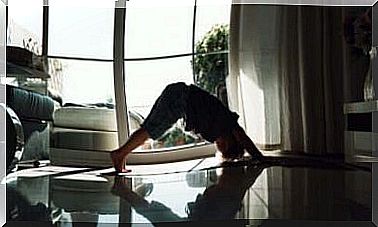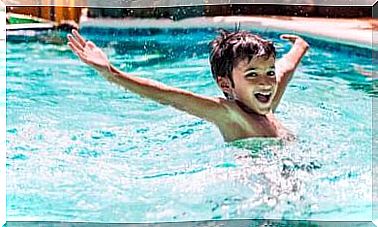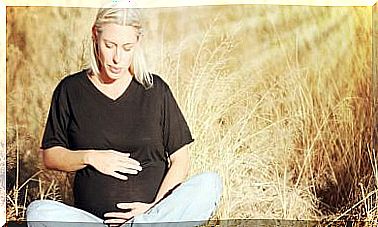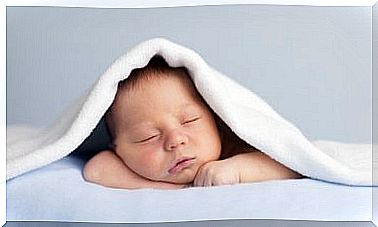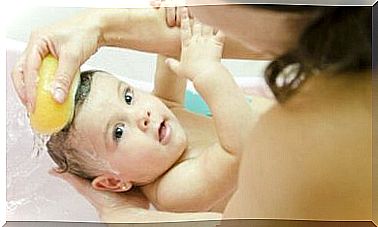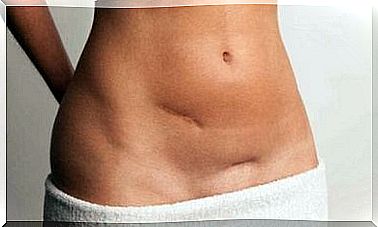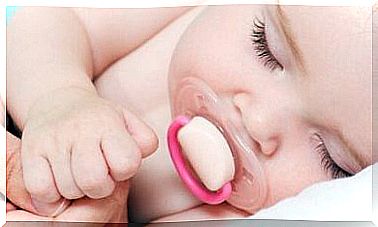Help Your Kids Brush Their Teeth Without Losing Your Temper
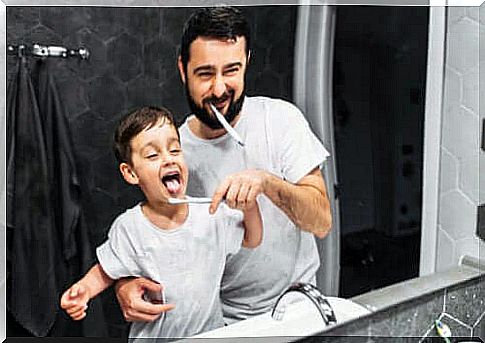
Adults are the ones who should help kids brush their teeth. However, this task can be a bit complicated if children are not cooperative with their own oral hygiene.
Even though it may seem difficult at first, it is worth it. Good oral hygiene helps prevent diseases and complications. In addition, it improves the quality of life of children and promotes the proper development of oral functions.
To succeed in this, it is important to avoid losing your temper and getting frustrated. In this article, we’ll give you some helpful advice on how to help kids brush their teeth. After reading this, it will be easier for them to adopt this habit.
Why is it important to help children brush their teeth?
The oral cavity plays a very important role in children’s lives: talking, chewing and eating are actions that depend on this structure. Therefore, oral hygiene is essential for children to prevent diseases and promote the proper development of their oral functions.
Preventing cavities is one of our primary goals in helping our children brush their teeth. In fact, cavities are very common during childhood and can have serious consequences.
Some of the most common consequences include tooth decay and loss, pain, infection risks, and low self-esteem due to the appearance of their smile.
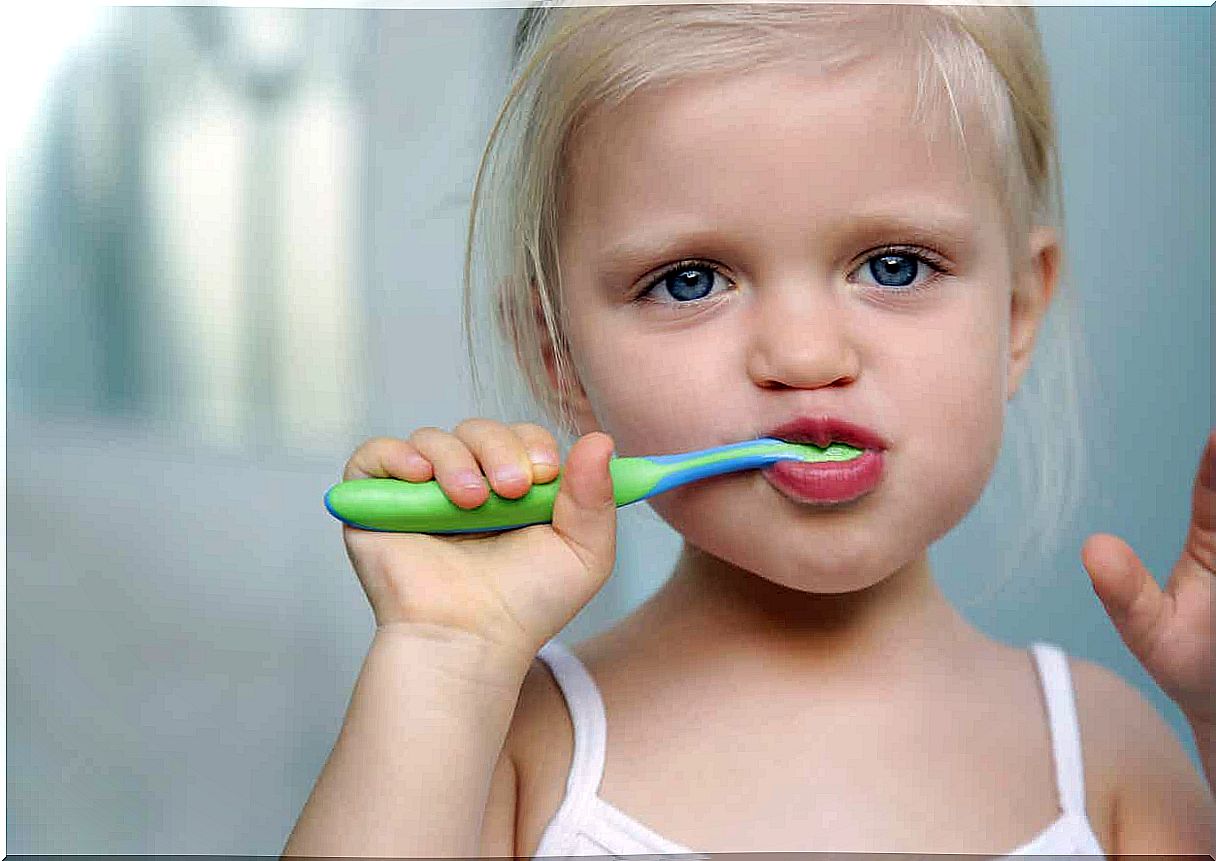
In addition, oral hygiene helps prevent tartar build-up, bad breath, and gingivitis. Therefore, oral care should begin on the day children are born.
To do this, children should brush their teeth well, use a fluoride paste, eat a low-sugar diet and visit the dentist regularly. Below we discuss some aspects to consider when helping your children brush their teeth.
How to help children brush their teeth?
Oral hygiene should start before the teeth come through. You should start taking care of it even when your child is a baby, with a wet cloth on the gums and tongue. This will help eliminate any remaining milk, food, or bacteria.
When babies are between six and ten months old, their first teeth start to come through and this is the perfect time to start brushing their teeth. You can also use a little fluoride paste (the size of a grain of rice).
Adults are the ones responsible for properly brushing children’s teeth (including the tongue) with gentle strokes. Once teeth come into contact with adjacent teeth, it’s time to use dental floss. However, the dentist will give you the best advice on how to use it and when to start using it.
When children are between two and three years old, they learn to spit. Then it’s time to use more toothpaste (the size of a lentil). And don’t forget to tell them to spit out the toothpaste and not swallow it.
The best toothbrush according to a child’s age
You should start using toothbrushes as soon as your baby’s first teeth come through, and not before. Here are some suggestions for choosing the right toothbrush for your child:
- Small head: This allows the toothbrush to clean all different parts of the mouth.
- Soft Nylon Bristles: This helps remove bacterial plaque without hurting the mouth.
- Comfortable handle: Since parents are responsible for brushing their children’s teeth, they should look for a handle that they find comfortable.
In addition, you should make sure that the toothbrush you choose has undergone quality control testing and has an acceptance seal. Another important factor to keep in mind is the age of your child. Brands sell different products based on their age.
When you ask your child to help you choose their toothbrush, you motivate them to take care of their oral health.
What kind of toothpaste should you use?
Today, specialists have been recommending fluoride toothpaste since the day children started brushing their teeth. Toothpaste containing between 1,000 and 1,400 parts of fluoride per million has a preventive effect. You can find this information on the packaging of the toothpaste. So watch out for that.
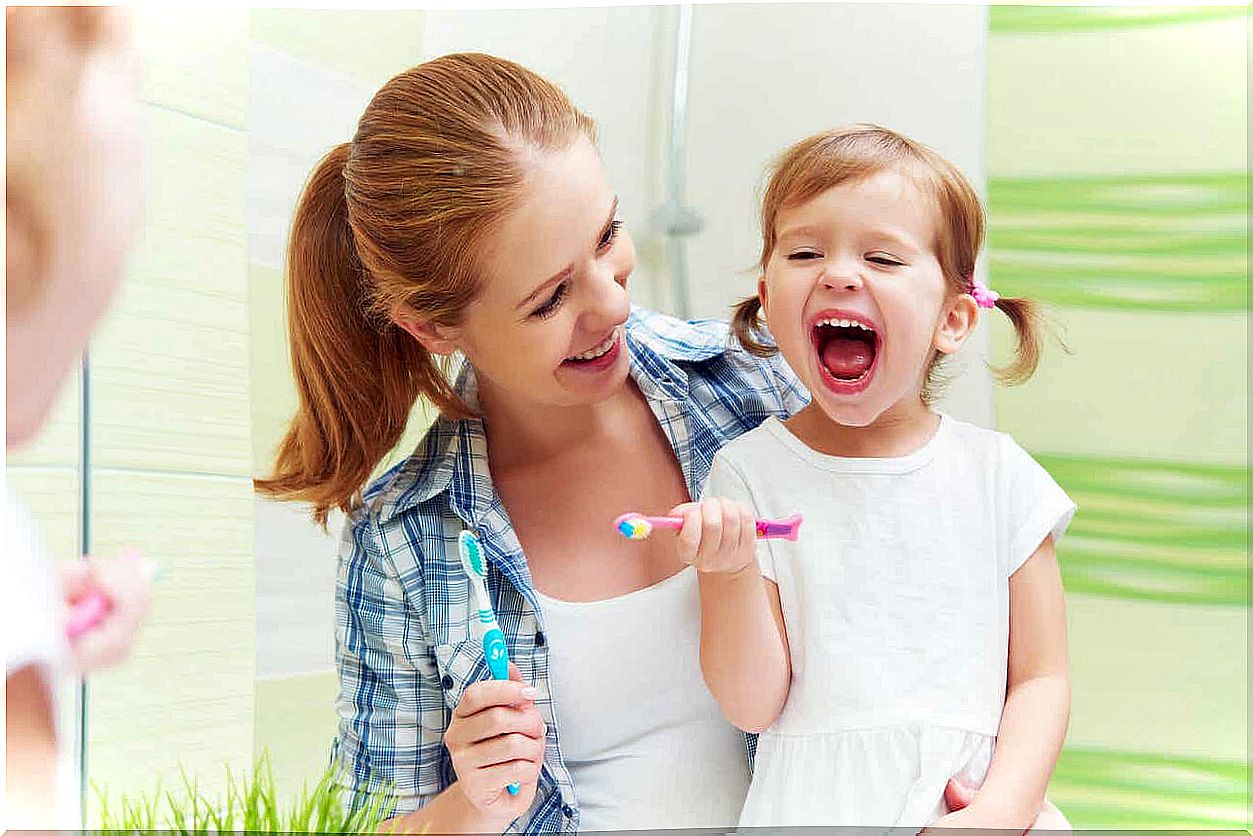
The amount of toothpaste you put on the toothbrush will depend on your child’s age and ability to spit. In the beginning, when they are very young, they do not know how to do this. Therefore, use a small amount of toothpaste (the size of a grain of rice).
Once they are three years old, you can use more toothpaste (pea size). However, you have to make sure that children spit out the toothpaste. Remember that it is your responsibility to put the toothpaste on the toothbrush.
Remember to pay attention to the taste of the toothpaste and choose a toothbrush with your children’s favorite character. This will motivate them to take care of their oral hygiene.
Tips to avoid losing your temper
We’ve already talked about the type of toothbrush you should choose. We also mentioned which toothpaste to use and when to start brushing your kids’ teeth. However, since it can be quite chaotic to help your kids brush their teeth, here are some tips to help you do it without losing your temper:
- Adults are the ones who brush their child’s teeth: children can play and exercise, but adults are responsible for their oral hygiene.
- You must follow an efficient technique: you must try to clean all parts of the teeth. Plus, following a sequence helps you cover all the different parts of the mouth. If your kids are too young and uncooperative, you can open their mouths with your fingers.
- Use a comfortable position: You should both be comfortable while doing this. Some parents prefer to let their children sit on their laps. This way you will be behind them and it might be easier to do it. Other parents prefer to be around their children. You have to try different positions and choose the one that suits you best.
- Be patient: don’t get mad at your kids. At first, they may cry or resist. Remember that love and patience are the best tools to make them work together. In addition, you can sing songs, reward them or show how you do it. Besides, explaining what you are going to do and why you are going to do it is also a very good idea. You can even read them a story or watch a video about it, and then practice with a doll.
When can children brush their own teeth?
By the age of six, children already have the appropriate psychomotor skills to brush their own teeth. However, this doesn’t mean adults should stop helping their oral hygiene.
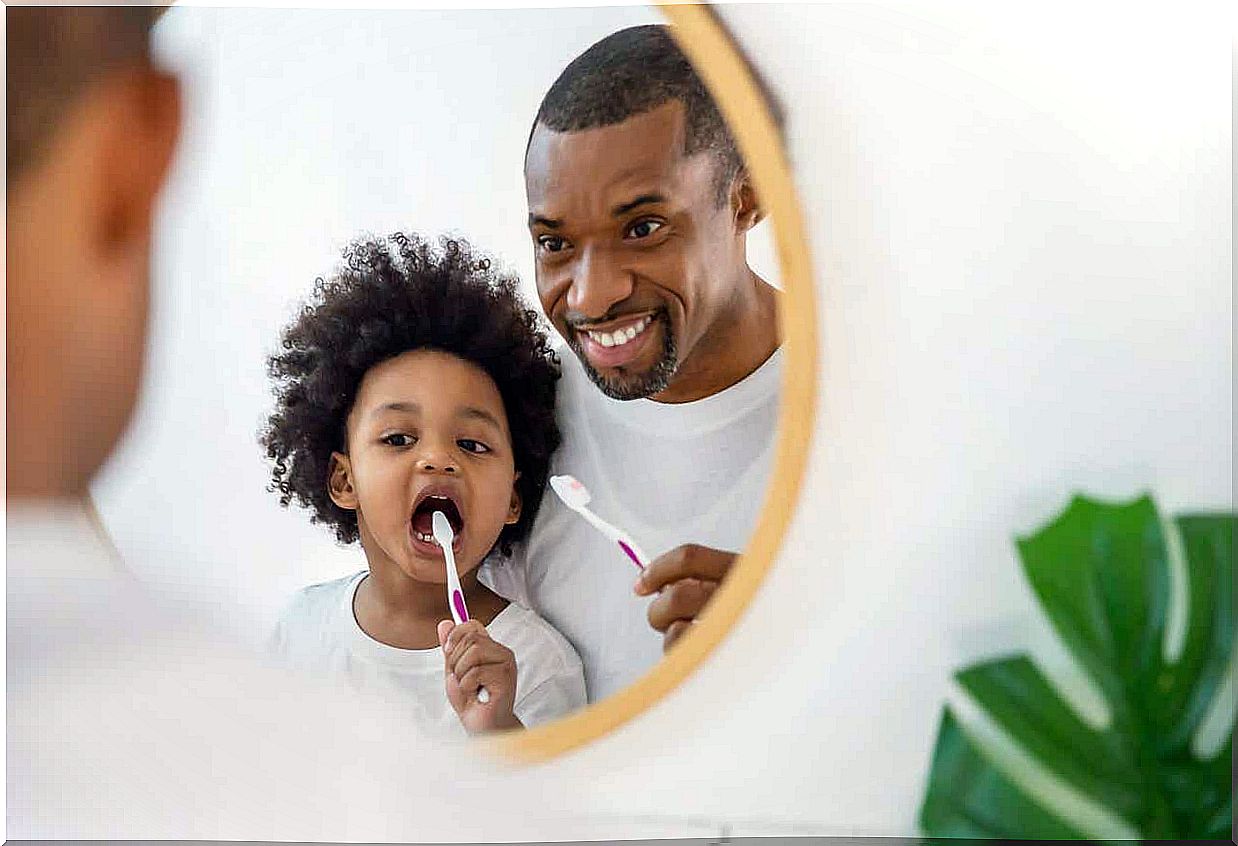
On the contrary, adults should motivate their children to brush their own teeth and make sure they are doing it right. So they will be in charge of teaching and controlling the process. They should check that their children use and spit out the toothpaste properly.
In addition, they will have to remind children to brush their teeth and insist that they do so constantly.
When children are six years old, they can brush their teeth on their own and parents can help them every now and then. This way, kids will pick up the habit and parents will make sure they do it right.
Once kids are eight years old, they are ready to go it alone every time. However, adults should always keep an eye on them and help if they need it.
Promote a healthy habit
Taking the time to teach children to brush their teeth is very good for their future. Even if they cry or resist at first, it will be good for them to get into this habit for the rest of their lives. Not only do you help them take care of their oral hygiene, they also learn to take care of their bodies for the rest of their lives.
